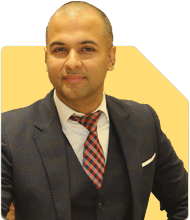I am 50year old .i am doctor by profession.My wife is also doctor and govt.employee.our mo thly income is 4lakh.i have invested in real estate,ulip and guaranteed plans.Now i invested in mutual funds for last 3-4 month in motilal oswal mid cap,nippon large cap,quant small cap,quant infrastructure direct fund ,Sbi contra fund and tata small cap.I can invest 1 lakh per month and even more.PLease guide me in my portfolio and other investment to create fund for retirement of 3-4 lakh per month
Ans: At 50 years old, with a stable income of Rs. 4 lakhs per month, you are in a strong financial position. Both you and your wife being doctors and having government jobs provide a solid financial foundation. You aim to build a retirement corpus that provides Rs. 3-4 lakhs per month. This goal is realistic but requires careful planning and adjustments to your current investment strategy.
Evaluating Your Existing Investments
You have diversified your investments across real estate, ULIPs, guaranteed plans, and mutual funds. However, it’s important to assess how well these align with your retirement goals.
Real Estate Investments
Real estate can be a good long-term investment. However, it often lacks liquidity. In the context of retirement planning, liquidity is crucial. If you need funds quickly, selling real estate might not be easy. Also, the returns from real estate can be inconsistent. While it has growth potential, the market is also subject to downturns.
ULIPs and Guaranteed Plans
ULIPs and guaranteed plans often come with high fees and lower returns. The insurance component in these plans usually dilutes the investment returns. For someone aiming to build a retirement corpus, these might not be the most efficient options. It might be wise to consider surrendering these policies and reinvesting in more growth-oriented instruments like mutual funds.
Current Mutual Fund Investments
You have started investing in mutual funds, which is a positive step. Your portfolio includes mid-cap, large-cap, small-cap, infrastructure, and contra funds. While diversification is good, it’s important to ensure that each investment aligns with your long-term goals.
Assessment of Your Mutual Fund Portfolio
Let’s take a closer look at your current mutual fund investments and evaluate their suitability for your retirement goal.
Mid-Cap Funds
Mid-cap funds have the potential for high growth. They invest in medium-sized companies that are likely to grow over time. However, they also come with higher risk compared to large-cap funds. While it’s good to have mid-cap exposure, it’s important to balance it with more stable investments.
Large-Cap Funds
Large-cap funds invest in well-established companies. These companies have a track record of stability and growth. Large-cap funds are less volatile than mid or small-cap funds. They provide steady returns and are essential in a retirement portfolio.
Small-Cap Funds
Small-cap funds can deliver high returns, but they are also highly volatile. Investing in small-cap funds is risky, especially as you approach retirement. While they can be part of your portfolio, the allocation should be limited.
Infrastructure and Contra Funds
Infrastructure funds invest in companies involved in infrastructure development. They can provide good returns, but they are also subject to sector-specific risks. Contra funds, on the other hand, invest in underperforming sectors with the hope of a turnaround. These funds can be rewarding but require a long-term horizon and carry higher risk.
Direct Funds
Direct funds have lower expense ratios but require active management. If you are not monitoring your investments closely, direct funds might not be ideal. Investing through a Certified Financial Planner (CFP) can help manage this, as they provide professional advice and regular reviews.
Recommendations for Portfolio Adjustment
To create a robust retirement fund, it’s crucial to refine your portfolio. Here’s how you can do that:
Rebalance Your Mutual Fund Portfolio
Increase Allocation to Large-Cap Funds: Large-cap funds provide stability and should form the core of your portfolio. Consider increasing your allocation to these funds for steady growth.
Reduce Exposure to Small-Cap Funds: While small-cap funds offer high growth potential, they also carry high risk. Given your retirement goal, it’s advisable to reduce exposure to small-cap funds and reallocate to more stable options.
Consider Balanced or Hybrid Funds: These funds invest in both equity and debt instruments. They provide a balanced risk-reward ratio and are suitable for investors nearing retirement. They offer stability while still providing growth opportunities.
Limit Sector-Specific Funds: Infrastructure and contra funds are subject to sector-specific risks. It might be wise to limit your exposure to these funds and focus on more diversified funds that spread risk across sectors.
Reevaluate Real Estate and ULIPs
Surrender ULIPs and Guaranteed Plans: ULIPs and guaranteed plans might not provide the returns needed for your retirement goals. Consider surrendering these policies and reinvesting the proceeds in mutual funds. This move can potentially offer better returns and align with your retirement plan.
Consider Selling Real Estate: If your real estate investments are not generating the expected returns or if they are illiquid, you might consider selling some properties. The proceeds can be reinvested in more liquid and growth-oriented instruments like mutual funds.
Increase Monthly Investment
Allocate Rs. 1 Lakh or More Monthly: With a monthly income of Rs. 4 lakhs, you can afford to invest more. Allocating Rs. 1 lakh or more per month towards your retirement fund can significantly enhance your corpus over time. Focus on large-cap and balanced funds for these investments.
Set Up a Systematic Investment Plan (SIP): A SIP allows you to invest regularly in mutual funds. This approach not only helps in averaging out the cost but also instills discipline in investing.
Tax Planning and Retirement
Investing in mutual funds is tax-efficient, but it’s essential to plan for the tax implications. Equity mutual funds are subject to long-term capital gains tax (LTCG). Proper tax planning can help in maximizing your retirement corpus.
Consider Tax-Saving Funds: Investing in tax-saving mutual funds can help reduce your taxable income while growing your retirement corpus.
Plan for Post-Retirement Income: Once you retire, the withdrawal strategy will be crucial. Systematic Withdrawal Plans (SWP) from mutual funds can provide regular income while minimizing tax liabilities.
Final Insights
Building a retirement corpus of Rs. 3-4 lakhs per month is achievable with the right strategy. Your current portfolio is diverse, but it needs adjustments to align with your retirement goals. Focus on increasing your allocation to large-cap and balanced funds, reducing exposure to high-risk small-cap and sector-specific funds, and considering the liquidity and return potential of your real estate and ULIP investments.
By investing Rs. 1 lakh or more per month, regularly reviewing your portfolio, and working with a Certified Financial Planner (CFP), you can create a solid retirement fund that meets your needs. This disciplined approach will ensure that your investments grow steadily, providing the desired retirement income.
Best Regards,
K. Ramalingam, MBA, CFP,
Chief Financial Planner,
www.holisticinvestment.in



























